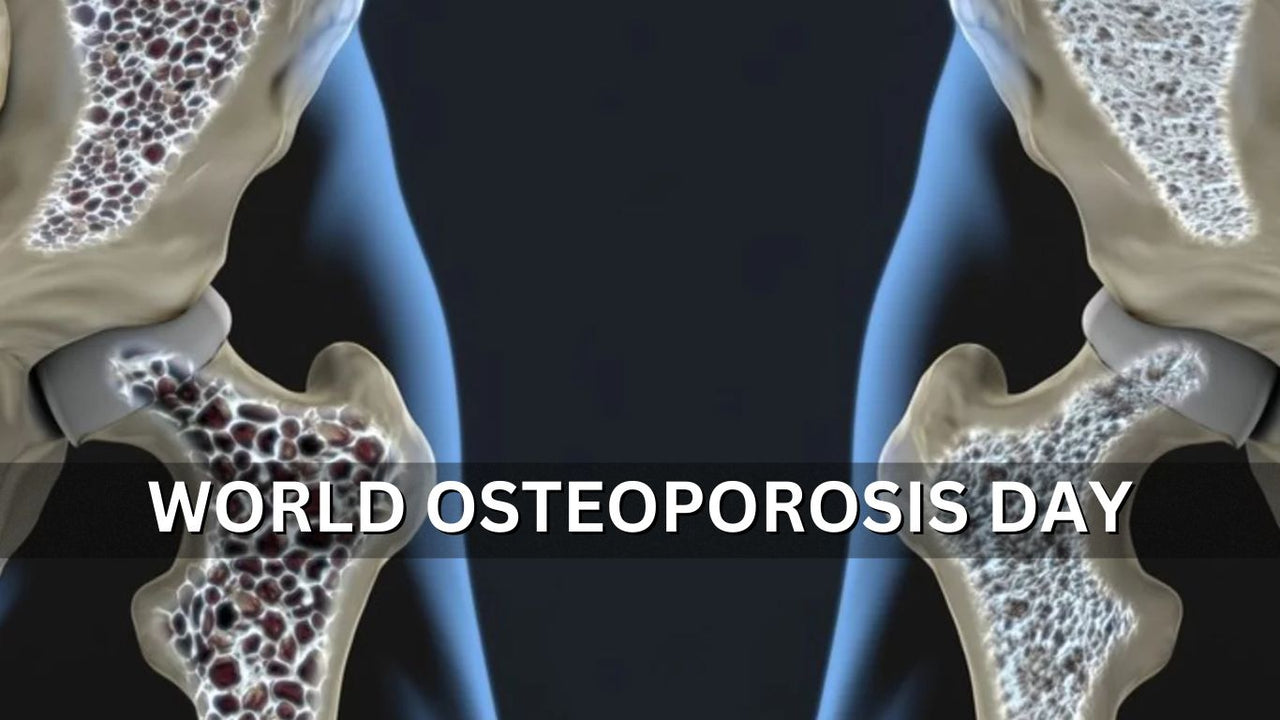
Building Better Bones: A Guide to World Osteoporosis Day 2023
World Osteoporosis Day, observed on October 20th, is an annual reminder of the importance of bone health. This year, the theme is "Build Better Bones." In this blog post, we'll explore the origins of this day, share some bone health statistics, delve into the theme's focus on preventing falls and the dangers of secondary fractures, and provide practical tips for maintaining healthier bones.
Origins of World Osteoporosis Day
World Osteoporosis Day began on October 20, 1996, thanks to the initiative of the National Osteoporosis Society in the United Kingdom, with support from the European Commission. Since 1997, the International Osteoporosis Foundation (IOF) has taken the lead in organizing this significant day. It's fascinating to note that before 1994, osteoporosis wasn't widely recognized as a major health concern. However, in 1998, two prominent organizations joined forces with a shared mission: to educate the public about osteoporosis, leading to the formation of the International Osteoporosis Foundation.
Statistics on Bone Health and Osteoporosis
Globally, osteoporosis takes a toll, with one in three women and one in five men aged 50 and above experiencing osteoporotic fractures. This condition renders bones fragile and vulnerable to fractures, making them susceptible to breaking from even minor incidents like a slight fall, a gentle bump, a sneeze, or sudden movements. Such fractures stemming from osteoporosis not only pose a threat to life but also become a significant source of pain and enduring disability. Only 20% of patients with osteoporotic fractures are actually diagnosed or treated for osteoporosis, the underlying disease. In 2010, in Europe alone, some 12.3 million people considered to be at a high risk for osteoporotic fractures were left untreated.

The Importance of Bone Health
Strong bones are essential for overall health and well-being. They provide structural support, protect vital organs, and enable mobility. However, as we age, our bones naturally become weaker, making them more susceptible to fractures. Osteoporosis accelerates this process, significantly increasing the risk of fractures, especially in the wrists, hips, and spine.
By prioritizing bone health, individuals can reduce the risk of osteoporosis and maintain an active lifestyle. Developing healthy habits, such as proper nutrition, regular exercise, and lifestyle modifications, can help build and maintain strong bones throughout life.

Risk Factors for Osteoporosis
Understanding the risk factors for osteoporosis is crucial for early detection and prevention. While age and gender play a significant role, other factors can contribute to the development of this condition:
- Family history of osteoporosis
- Low calcium and vitamin D intake
- Sedentary lifestyle
- Smoking and excessive alcohol consumption
- Certain medications (e.g., corticosteroids)
- Medical conditions (e.g., hormonal disorders, gastrointestinal disorders)
If you have one or more of these risk factors, it's essential to discuss them with your healthcare provider and take proactive steps to protect your bone health.

Preventing and Managing Osteoporosis
Prevention is key when it comes to osteoporosis. By adopting a few simple lifestyle changes, you can significantly reduce the risk of developing this condition:
- Consume a balanced diet rich in calcium and vitamin D. Include dairy products, leafy green vegetables, and fortified foods in your meals.
- Consider pharmaceutical-grade supplements with essential nutrients for bone health, following medical advice.
- Engage in weight-bearing exercises like walking, jogging, dancing, or weightlifting to strengthen bones and improve balance.
- Avoid smoking and limit alcohol consumption, as they can negatively impact bone health.
- Get regular screenings and bone density tests to assess your bone health and detect any signs of osteoporosis early.

World Osteoporosis Day serves as a reminder to prioritize bone health and take proactive steps to prevent osteoporosis. By raising awareness and educating individuals about the importance of strong bones, we can reduce the burden of this condition worldwide.
Remember, building better bones starts with small lifestyle changes that can have a significant impact on your long-term health and well-being. Take charge of your bone health today!

Leave a comment: